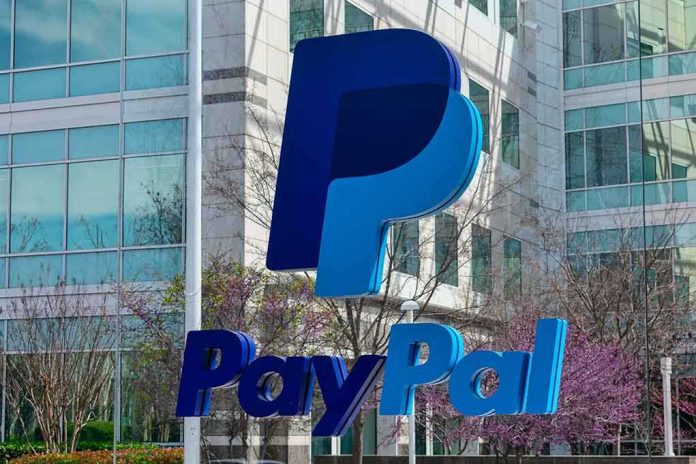
Cybercriminals have weaponized PayPal’s own legitimate email system to send authentic-looking urgent messages that bypass traditional security filters, creating a sophisticated scam that threatens the financial security of millions of Americans.
Story Highlights
- Scammers exploit PayPal’s real infrastructure to send authentic notifications and invoices directly to victims
- Both PayPal users and non-users receive urgent messages claiming suspicious activity or payment requests
- Law enforcement and cybersecurity experts warn traditional phishing detection methods fail against these attacks
- Victims lose money and personal information by responding to fraudulent phone numbers embedded in real PayPal emails
Sophisticated Criminals Hijack Trusted Payment Platform
Cybercriminals discovered how to manipulate PayPal’s legitimate notification system to generate real emails and invoices that appear completely authentic. Unlike traditional phishing attempts with poor grammar and fake domains, these scams trigger actual PayPal communications using features like “add address” or “money request” functions. The messages bypass email security filters because they originate from PayPal’s own servers, making detection nearly impossible for average users who rely on standard security measures.
Urgent Tactics Target Vulnerable Americans
Scammers craft messages claiming suspicious account activity or unauthorized transactions, creating panic that bypasses rational thinking. These communications include toll-free numbers connecting victims directly to fraudsters posing as PayPal customer service representatives. The psychological manipulation exploits Americans’ legitimate concerns about financial security, particularly targeting older adults and small business owners who depend on digital payment platforms for their livelihoods.
Regulatory Response Falls Short of Protection
Attorney General Dave Sunday acknowledged the sophistication of these cyber scams while emphasizing individual vigilance over systemic solutions. PayPal updated security guidance advising users to forward suspicious emails to [email protected] and verify communications through direct login, but these reactive measures fail to address the fundamental vulnerability in their notification system. This response pattern reflects broader government tendencies to place responsibility on citizens rather than demanding corporate accountability for security failures that enable criminal exploitation.
Financial Consequences Threaten Family Security
Victims face immediate financial losses, identity theft, and emotional distress while PayPal’s reputation and user trust erode. The scam’s sophistication means traditional cybersecurity defenses prove inadequate, forcing payment platforms to increase fraud prevention costs that ultimately burden consumers through higher fees. Law enforcement struggles to prosecute these crimes due to their technical complexity and international scope, leaving hardworking Americans vulnerable to sophisticated criminal enterprises that exploit trusted financial infrastructure.
Cybersecurity experts recommend multi-factor authentication and direct PayPal login verification for all communications, but stress that user education alone cannot solve systemic vulnerabilities that allow criminals to exploit legitimate business infrastructure for fraudulent purposes.
Sources:
New PayPal scam uses real emails to trick you – Fox News
Suspicious Activity – PayPal Security
Attorney General Sunday Warns Consumers About PayPal Scam
How to Spot Fake PayPal Emails – PayPal Help




